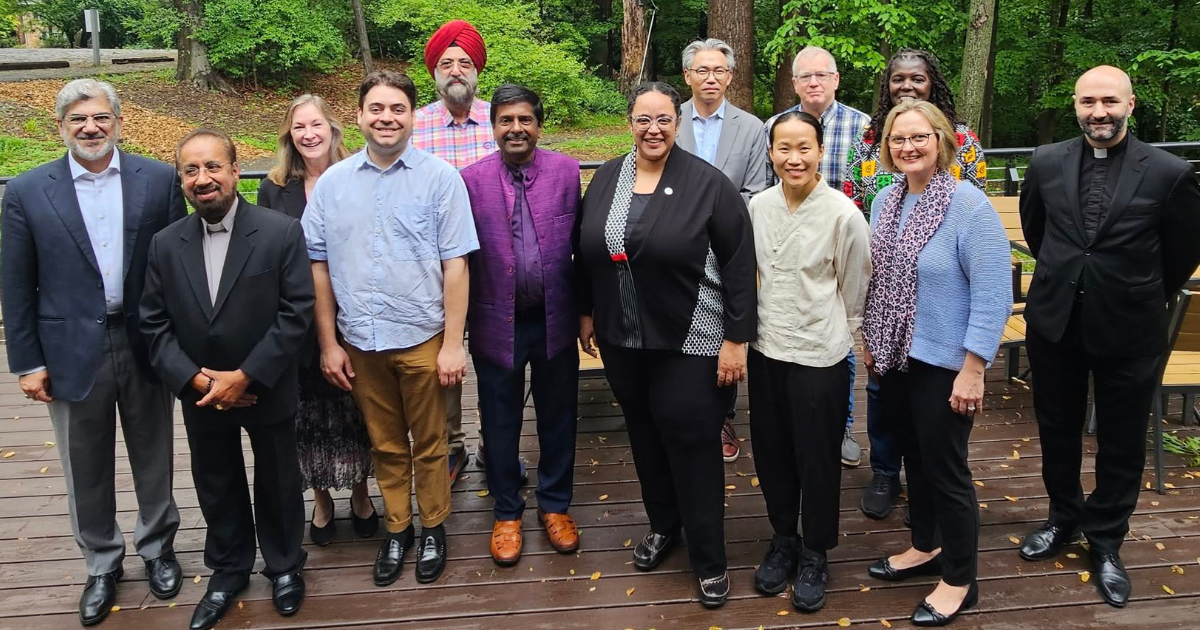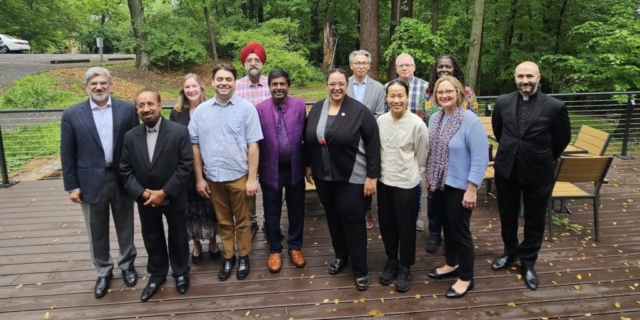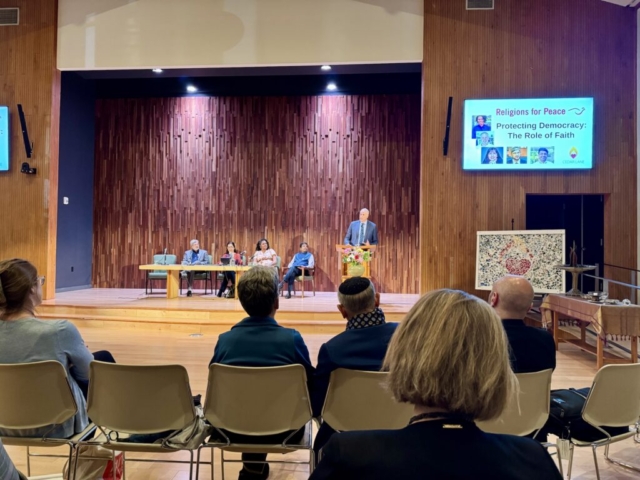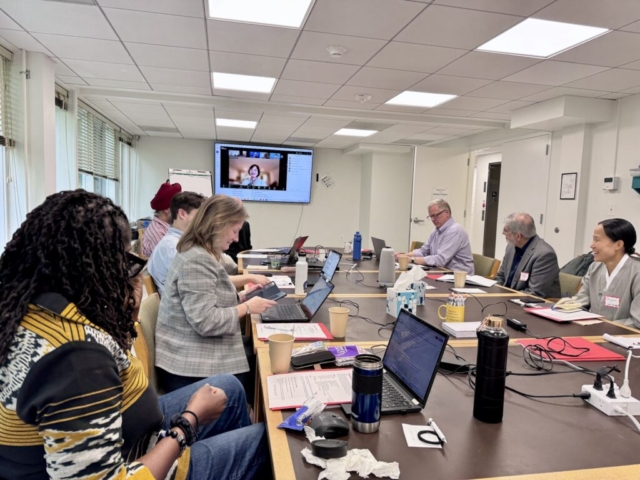
Faith in a Time of Fracture: Religions for Peace USA Reaffirms Its Mission at National Retreat
By Rev. Paul S. Tché
In early May, leaders from across the religious spectrum gathered at the Cedar Lane Unitarian Universalist Congregation in Bethesda, Maryland, for the annual retreat of Religions for Peace USA (RfPUSA). This timely gathering of faith leaders, interfaith practitioners, and advocates reflected deeply on the role of religion in an increasingly polarized and fragile world.
A Mission Rooted in Peace, Justice, and Interfaith Collaboration
Religions for Peace USA exists as a national interfaith body committed to building peace through multi-religious cooperation. With ties to the broader global Religions for Peace International movement, RfPUSA brings together religious communities to address the pressing moral and spiritual challenges of our time. While the organization operates with limited financial resources and a volunteer-based structure, its commitment to prophetic witness and faithful collaboration remains unwavering.
Priorities for a Fractured Nation
The retreat made clear that RfPUSA’s current and future focus is centered on the intersection of democracy, justice, and faith. Among the top priorities identified were:
- Protecting Democracy and the Role of Faith
- Confronting Religious Nationalism, Autocracy, and Hate
- Advocating for Diversity, Equity, and Inclusion
- Addressing Islamophobia, Anti-Semitism, and Religious Extremism
- Pursuing Racial and Social Justice from a Faith-Based Perspective
Programming efforts—including a robust series of webinars and public forums—are already underway to engage these themes, with participants exploring how faith communities can become resilient hubs of resistance, sanctuary, and public education.
Panel on Faith and Democracy: Courage, Justice, and Sacred Resistance
One of the most impactful moments of the retreat was the interfaith panel titled “Protecting Democracy: The Role of Faith.” Panelists included Rev. Paul Brandeis Raushenbush (Interfaith Alliance), Jeanné Lewis (Faith in Public Life), Imam Naeem Baig (RfPUSA), and Dr. Sousan Abadian (Interfaith Council of Metropolitan Washington DC).
Each speaker brought a distinct perspective grounded in both tradition and action:
- Rev. Raushenbush called for moral courage as a spiritual discipline in defending democracy against authoritarian misuse of religion.
- Jeanné Lewis uplifted the power of faith-based love and practical solidarity, urging communities to offer safe spaces and vocal protection for marginalized groups.
- Imam Baig evoked Islamic teachings to underscore the moral obligation of faith communities to defend justice and resist silence.
- Dr. Abadian reminded participants that democracy thrives not on certainty, but on humility, love, and the capacity to hold complexity with care.
A shared thread ran through their contributions: faith communities must reclaim their prophetic voice and resist co-optation by political and ideological forces of division.
A Morning with Rev. Dr. Sofia Betancourt: Grounded, Strategic, and Hopeful
Tuesday morning’s breakfast address by Rev. Dr. Sofia Betancourt, President of the Unitarian Universalist Association, was a spiritual and strategic highlight. Her words reminded us that faith is not merely reactive—it must be active in shaping the moral contours of public life.
Lifting up the success of coalition efforts like Jubilee USA’s $130 billion in debt relief, she underscored that strategic collaboration across traditions can yield real transformation. Dr. Betancourt urged faith communities to stay focused, highlighting four areas where UU organizing is most engaged: climate justice, anti-criminalization, LGBTQ/gender justice, and electoral democracy.
Most moving was her insistence that faith communities are not just organizations—they are sacred spaces where people can model love, resist violence, and practice accountability across divides.
A Personal Reflection: The Role of Faith in This Time
As a participant and ecumenical disciple, I left the retreat both challenged and inspired. We are clearly living through a time of social fragmentation, political volatility, and spiritual exhaustion. Yet, the consistent message I heard—through panelists, speakers, and informal conversations—was this: faith is not a luxury in times like these; it is a lifeline.
Faith, when lived with integrity, can embolden us to speak truth in love, accompany the suffering, and imagine a future beyond fear. We are not called to retreat from the world’s brokenness but to meet it with prayerful courage and prophetic action.
In that spirit, I remain committed to the work of Religions for Peace USA and to building deeper interfaith relationships that bear witness to a peace founded not on silence, but on justice, compassion, and shared resolve.
Disclaimer: The views and opinions expressed in this article are solely those of the author and do not necessarily represent the views of the CUIM or the Christian Church (Disciples of Christ).



